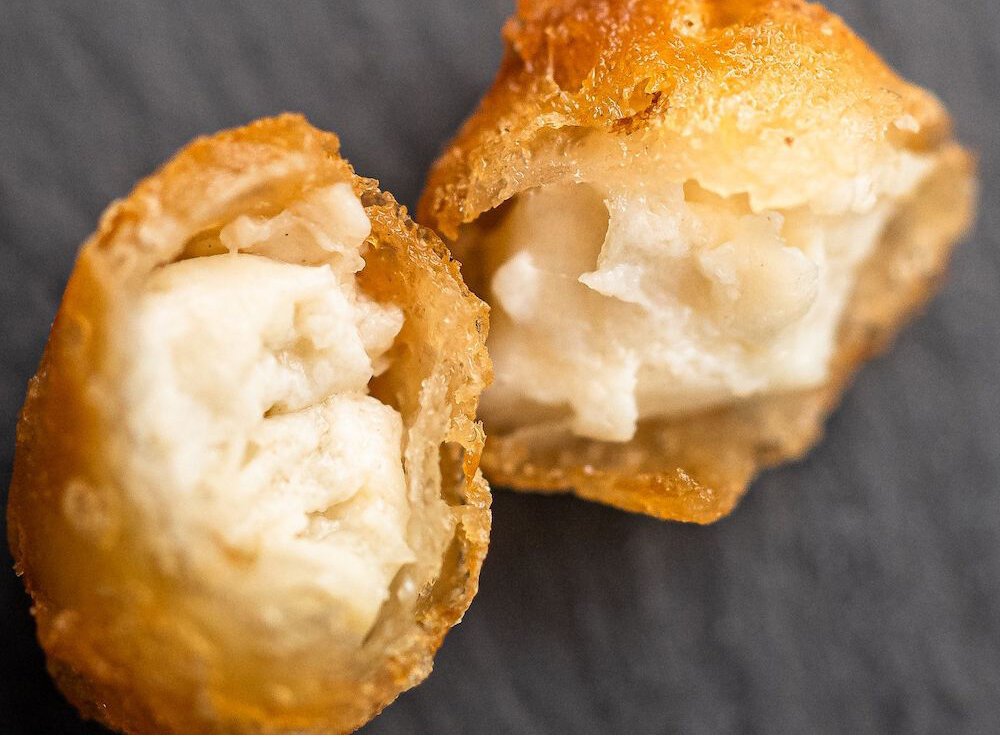
BlueNalu's lab-grown yellowtail medallions atop a bisque of roasted butternut squash.
Earlier this month, a partnership to spearhead a transformation in Europe’s seafood industry emerged. On one side of the partnership is Nomad Foods: Europe’s largest frozen food company, owner of brands such as Birds Eye, Findus and Iglo, and maker of tremendously popular fish fingers. One the other, BlueNalu: a fresh player in the sustainable food business from San Diego, California, that aims to be the global leader in cell-cultured seafood technology.
Together, Nomad Foods and BlueNalu will work to identify product opportunities and consumer insights, as well as the regulatory requirements that would come with introducing cell-cultured seafood in Europe. As a result, not too far in the future Europeans may be savoring fish fingers made from cells grown in a lab, not harvested from the oceans.
So, why is this partnership important?
Together with plastic pollution, overfishing is the main reason for the dramatic decline in marine biodiversity that the world has witnessed over the past decades, the World Wildlife Fund for Nature (WWF) determined in a 2018 report. Humans have taken almost 6 billion tons of fish and invertebrates from the world’s oceans since 1950. Six billion tons. Can you imagine how many living creatures that is?
Protecting life below water is one of the 17 goals of the United Nations for global sustainable development. All nations and continents need to contribute if we are to achieve this goal, but Europe might need to make an extra effort: Europeans consume more than three times the seafood they produce, making Europe the largest importer of seafood in the world.
Europeans’ appetite for fish remained high even during the COVID-19 crisis. Luckily, Europeans’ preference for fish is joined by an increasing awareness of the environmental and health issues surrounding fish consumption.
From a business perspective, this represents a huge opportunity for Nomad Foods and BlueNalu. However, this partnership could mean much more. We could be witnessing the beginning of a radical transformation in the seafood industry.

The radical potential of cell-cultured seafood
Cell-cultured seafood relies on the extraction of cells from fish, mollusks or crustaceans in order to propagate them in a lab setting. When grown on a proper scaffold, the result is edible seafood with the texture and structure that we know and love from wild-caught fish.
It sounds like science fiction, but this revolutionary technology may be key to repopulating the world’s seas, now decimated by overfishing, illegal fishing and a series of environmental calamities.
Cell-cultured seafood can also turn into a champion of animal welfare, as it could spare billions of living creatures from being fished and farmed in suboptimal conditions. The technology also promises to address consumers’ health concerns, as wild-caught seafood can be the source of mercury, toxins, pathogens and micro-particles of plastic, among other things.
All these benefits make cell-cultured seafood highly attractive, both from a business and environmental perspective, but some challenges lie ahead.
The challenges to overcome
Like all radical technologies, this one will need regulatory approval before it can be applied to mass consumption products in Europe. But the blessing of regulators will not be enough: Consumers will need to accept lab-grown fish, too.
Luckily for Nomad Foods and BlueNalu, Europeans are arguably the most environmentally-aware people in the world and some of the most health conscious. As a result, Europe might be the ideal place to introduce cell-cultured seafood to regulators and consumers.
But then there is the question of costs. We have seen it before: Products made with revolutionary technologies like this one are often very expensive at first. As a result, many will probably think twice before purchasing cell-cultured fish fingers. However, there is reason to be optimistic. Without going too far, prices of lab-grown meat have declined sharply and are expected to achieve parity with regular meat prices soon.
The road ahead
In the words of Stéfan Descheemaeker, chief executive officer of Nomad Foods: “The food industry is at a transformational moment as consumer demand for nutritious, high-quality food is growing, the importance of sustainability has never been more apparent, and the role of technology in delivering these needs is accelerating.”
Nomad Foods is the world’s largest purchaser of sustainable wild-caught fish. Meanwhile, BlueNalu is already focusing its revolutionary technology on fish species that are commonly overfished, difficult to farm-raise and typically imported. Given their track records and orientations, the partnership between the two could kickstart an industry-level transformation built on the pillars of technology, health and sustainability.
If the challenges ahead can be sorted (and there is reason to be optimistic that they will), Nomad Foods' vision of offering “great tasting seafood products that are good for people, good for the planet and accessible to all” could become a reality soon.
Images courtesy of BlueNalu

Laura Urdapilleta is a management consultant and entrepreneur who believes in the power of relationships and being in harmony with nature.














